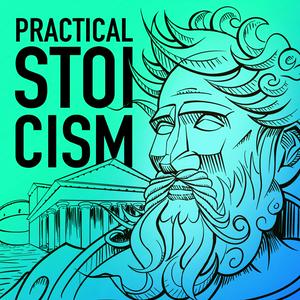When Rest & Relaxation Become Vice (Mediation 3.14)
This week, I take a closer look at Meditations 3.14, where Marcus Aurelius encourages us not to “wander from our path any longer.” It’s a meditation you’ve probably heard before, and while some translations simplify it to “put away your books,” I find that framing a little misleading. Books, much like hobbies or relaxation activities, have their place. They support our well-being and our pursuit of Virtue—when used in the right way.
In this episode, I unpack what Marcus really means. I talk about how there’s a responsible way to interpret the advice against distraction. It’s not about abandoning things that bring us joy or rest; it’s about being mindful of whether those things serve our ultimate goal of becoming better human beings. I use the example of video games to illustrate this balance. Rest is essential, and enjoyment isn’t the enemy, but when indulgence turns into avoidance, we drift away from our pursuit of Virtue.
I also explore the differences in translation between Long and Fark, and why I prefer Fark’s version here. Fark highlights that it’s not the activity itself that’s the issue—it’s the pursuit of recognition, fame, or self-indulgent goals that pull us off course.
The bottom line is this: hobbies and relaxation are fine, even necessary, but they must never contend with our pursuit of Virtue. When they do, they stop being harmless and become our greatest vices.
Meditation referenced:
“Do not wander from your path any longer, for you are not likely to read your note-books or your deeds of ancient Rome and Greece or your extracts from their writings, which you laid up against old age. Hasten then to the goal, lay idle hopes aside, and come to your own help, if you care at all for yourself, while still you may.” — Meditations 3.14
Join the Practical Stoicism community, the Society of Stoics, at https://community.stoicismpod.com. Members enjoy ad-free episodes, weekly journaling prompts, a membership medallion, and access to regular live calls and discussions. Join today at https://community.stoicismpod.com.
Buy my book: https://stoicismpod.com/book
Read source material: https://stoicismpod.com/far
Subscribe on YouTube: https://stoicismpod.com/youtube
Follow me on Bluesky: https://stoicismpod.com/bluesky
Learn more about your ad choices. Visit megaphone.fm/adchoices
